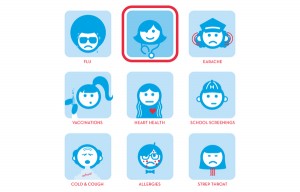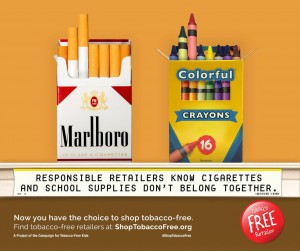 Call it a Silver Million Anniversary, if you will: The MinuteClinic just saw its 25 millionth patient.
Call it a Silver Million Anniversary, if you will: The MinuteClinic just saw its 25 millionth patient.
This is a milestone in the evolution and growth of retail health in America, a trend-marker in this growing health industry segment that will become increasingly used by consumers, patients, parents, and caregivers.
CVS bought the MinuteClinic in 2006, when the organization treated seven illnesses. Today, MinuteClinic offers 65 services and vaccinations in nearly 1,000 clinics located in 31 states and Washington, DC.
In addition, MinuteClinic will grow the number of clinic locations in both existing and new markets. The company will open more than 100 new clinics this year and anticipates surpassing 1,500 clinics by 2017. In the last nine months, MinuteClinic opened its first clinics in CVS/pharmacy stores in Nebraska, New Mexico, Rhode Island and Wisconsin.
 MinuteClinic has over 50 clinical affiliations in local markets, such as one in New Orleans linking with the Ochsner Health System, an academic medical center, for both services and medical records. MinuteClinic began working with the Epic EpicCare electronic medical record system in February 2014.
MinuteClinic has over 50 clinical affiliations in local markets, such as one in New Orleans linking with the Ochsner Health System, an academic medical center, for both services and medical records. MinuteClinic began working with the Epic EpicCare electronic medical record system in February 2014.
Just last week, the Robert Wood Johnson Foundation published a report on the opportunity for retail clinics to expand primary care access and value to health consumers in the U.S.
Health Populi’s Hot Points: CVS/pharmacy re-branded itself as CVS Health last year, dropping tobacco from its store shelves and reinventing its business with a broader health message. While tobacco sales represented $2 billion in annual sales, the company’s profits in 2014 were buoyed by Caremark, CVS’s subsidiary in the pharmacy benefits management (PBM) business — more than making up for the loss of cigarette and tobacco product sales.
This week, the Medicine Shoppe, part of Cardinal Health, went tobacco-free; bravo to this retailer, which joins the growing ranks of shopping venues who are moving away from selling cigarettes with peers like Target, Trader Joe’s, Wegmans (which I have also written about as a health destination), and Whole Foods, among a growing list of retailers. These organizations are part of the Shop Tobacco-Free alliance (#shoptobaccofree), a project of the Campaign for Tobacco-Free Kids, and you can find stores that don’t sell cigarettes at the group’s website here. Here’s the campaign’s “Wall of Fame,” with tobacco-free retailers; and you can also click on the “Wall of Shame” featuring store logos of those who still sell tobacco.
 The growth of retail health is part of the big trend of people doing more for themselves, empowered through mobile platforms, motivated by seeking transparency and greater control and personalization in daily life. Furthermore, greater financial burdens for health care payments out-of-pocket due to the growth of people enrolled in high-deductible health plans will see patients-cum-consumers frequent lower-cost, high quality retail health options that are accessible and price-transparent. Patients-as-consumers will also vote with their feet and dollars, patronizing businesses that represent both value and their values.
The growth of retail health is part of the big trend of people doing more for themselves, empowered through mobile platforms, motivated by seeking transparency and greater control and personalization in daily life. Furthermore, greater financial burdens for health care payments out-of-pocket due to the growth of people enrolled in high-deductible health plans will see patients-cum-consumers frequent lower-cost, high quality retail health options that are accessible and price-transparent. Patients-as-consumers will also vote with their feet and dollars, patronizing businesses that represent both value and their values.





 Grateful to Gregg Malkary for inviting me to join his podcast
Grateful to Gregg Malkary for inviting me to join his podcast  This conversation with Lynn Hanessian, chief strategist at Edelman, rings truer in today's context than on the day we recorded it. We're
This conversation with Lynn Hanessian, chief strategist at Edelman, rings truer in today's context than on the day we recorded it. We're